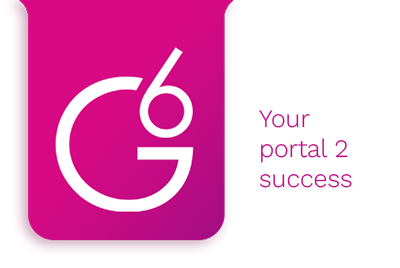Are you looking for ways to speed up your sales process? Do you want to take in more leads, but your current sales routine just isn’t cutting it?
I’ve been there!
My name’s AJ! After selling my business for multiple seven figures, it’s become my mission to help other small business owners find ways to grow their companies!
If I discovered one thing while operating a rapidly growing company, it was the importance of automating every task possible!
What do I mean by “automation”? Stick with me! I’ll explain everything you need to know.
Key Takeaways
Sales automation is when a computer completes routine tasks like data entry and follow-up messages.
Automation optimizes your sales force because it gives them more time for customer-centric tasks.
CRMs perform automation by using current and potential customer data.
An automation tool can send emails, perform lead management tasks, and track employee progress.
SBB Featured Partners
Sales automation is the process of using technology and software solutions to automate routine sales tasks that would otherwise take a considerable amount of time.
What types of tasks does sales automation handle? Some popular tasks include the following:
Lead generationFollow up emailsData entryCollecting and organizing sales dataSpecific duties associated with the sales pipeline
Essentially, automation gives your sales team more time to focus on customer-centric tasks.
That means they can spend more time building relationships and strategizing how to bring in better leads.
Sales automation software is the technology or program that automates sales tasks.
These sales automation tools are designed to help teams be more efficient and effective in their workflows.
Sales automation technology aims to help teams manage and track sales activities more efficiently and accurately.
That way, your sales reps can dedicate more time to revenue-generating tasks!
Further, automation tools help businesses manage more leads in their sales funnel.
And after securing more leads, a sales automation platform creates a standardized, step-by-step workflow that you continually tweak for greater efficiency and optimization.
Sales automation software works by users telling the program which aspects of their sales process they want to automate.
That said, users enter specific guidelines into the program, such as the email responses they want the software to spit out and lead qualification standards.
After that, the automation tool handles the rest, allowing users to maintain a hands-off approach to focus on other business tasks.
At its core, sales automation is about streamlining the tedious and repetitive tasks associated with the sales cycle.
The software automates activities such as:
Data entryEmail follow-upsLead trackingLead qualificationSchedulingReminders (deadlines, appointments, etc.)Cold email sequencing
These functions vary depending on the software provider, but many offer similar features.
The goal is for these tools to simplify and optimize the sales cycle!
Sales automation benefits cannot be over-emphasized! These valuable tools ensure your team works efficiently while closing more deals!
Here are six advantages of implementing a sales automation tool!
Sales automation tools allow you to optimize your sales team.
Typically, companies hire people as sales reps because they’re personable, convincing, and have excellent social skills.
However, some agents don’t get to use these skills as often because they’re stuck doing mundane, manual tasks.
Sales process automation gives your agents more time for customer-centric tasks, ensuring they utilize their skills and personality!
The best sales automation tools ensure your team can quickly and accurately perform necessary tasks.
On top of that, sales automation platforms allow you to build an efficient, repeatable sales process that creates a better customer shopping experience.
Further, organized sales processes make onboarding a new sales rep easier!
What more could you ask for??
Sales automation software makes collecting, recording, and analyzing data accessible.
That way, your sales managers don’t have to spend hours manually searching for customer information!
Also, many of these programs include reporting features that provide real-time analytics and dashboards to monitor your team’s progress.
However, the best part about sales process automation tools is that all your company’s data is stored in a centralized location!
Errors in business (even small ones) can be costly.
Fortunately, automation tools lessen the chances of sales teams making mistakes.
Digital tools can perform tasks faster than humans without getting distracted or fatigued (or bored).
Therefore, when you take manual tasks away from individuals and let computers handle them, you remove the chance for natural human errors!
As previously mentioned, a standard sales process makes it easier to train new employees.
A sales automation tool creates repetitive step-by-step instructions for your team, from lead qualification to closing a deal.
Therefore, new sales team members don’t have to guess what to do next! The process is already pre-made for them.
Also, as current sales reps become accustomed to these steps, they learn more and can help other team members.
Sales tools make it easier for your team to understand customer behaviors, interests, and shopping patterns.
For example, an automated sales process allows your team to track each stage of the buying journey, providing insights into customer preferences.
As a result, with access to this data, sales reps can identify areas where they can better serve customers and close more deals!
What business processes can sales automation software help with?
The answer may surprise you! Check out these awesome features many automation tools include!
Sales automation tools track and analyze each lead’s behavior and organize, score, and prioritize these individuals.
After that, lead management tools assign the leads to the best sales rep.
Each lead assignment is a tedious task for humans, taking hours to scan and assign potential customer data.
However, with artificial intelligence, you can complete this task in minutes!
Communication tools automate tasks such as:
Sending and responding to emailsChatbot functionalityAppointment schedulingReminders for meetings, deadlines, and appointmentsFollow-up messages
Communication automations help companies handle more customer interactions without compromising sales productivity.
Therefore, even if every employee is busy, your customers can still schedule appointments, get answers to their questions, etc.
Data entry is one of the most time-consuming sales tasks.
However, you can quickly collect customer information and update databases efficiently with automation.
For example, sales automation tools extract data from emails and forms to automatically create customer profiles and contact info.
Plus, this reduces the chances of errors in manual data entry!
Automation programs can create new customer profiles whenever leads interact with your marketing strategies.
Additionally, this feature stores contact information in your customer relationship management (CRM) software so every employee can access it.
Automated record creation ensures you have accurate lead data and can effectively cater to new customers.
Also, it ensures new leads don’t slip through the cracks (it’s more common than you think)!
Manual research and data analysis takes a lot of time, but automation software can quickly provide valuable insights.
With an automated solution, you can easily access up-to-date data from various platforms to understand their interests and preferences.
Some of these platforms include the following:
Social media activityInteraction and engagement with your company’s websiteGeneral internet activityEmail marketing ad interactions
Research automation identifies potential customers quickly while organizing the information for sales professionals.
Activity logging automation tracks details like:
Emails sent and receivedMeets scheduledPhone calls made
Activity logging ensures everyone can see how a rep progresses with a sales lead.
Why is activity logging necessary?
First, it ensures your sales process remains standardized and repeatable.
Additionally, it prevents sales agents from manually logging their activities throughout the day!
Are you still on the fence about implementing an automation platform? Don’t worry; I was too initially!
It helps to see specific sales automation examples!
From scheduling meetings to creating reports, sales automation tools handle your business’s essential tasks.
Without automation, scheduling meetings demand long email chains.
Your sales reps must send a message to learn about a customer’s availability, then wait for a response.
Ultimately, planning meetings this way eats up significant amounts of time.
However, a sales automation platform streamlines this process!
For example, with this software, customers can view a sales rep’s schedule with available meeting dates and times.
After choosing the best time, the automation software updates the availability and adds the meeting to the agents’ calendars.
Scheduling a meeting shouldn’t be the factor that causes the loss of qualified leads.
Instead, use automation to streamline this process and maximize your sales team’s time!
Automation software can help you find potential customers more quickly.
For example, some platforms use AI to analyze customer data and suggest leads that fit your target market.
Further, automations can scan the internet and find potential sales leads, sending your team weekly or monthly lists (without sending duplicates).
As a result, this software eliminates redundant tasks like researching leads or manually entering contact information into a database.
Automated prospecting tools ensure your sales team prioritizes their time on leads who are likelier to buy your products or services.
With an automated prospecting process, your sales team has more time to focus on closing deals!
Any sales professional knows that sending personalized emails yields better results than general messages.
However, this process can take hours of manual labor for each customer!
Fortunately, automation platforms offer several email automation tools.
Some of the features include the following:
Automated emails and responsesDrip campaignsWelcome messagesEmail templates
An excellent detail about these tools is that they send messages at the appropriate time while including personal information.
Additionally, you can craft email automation to stop message sequences if customers don’t take specific actions.
For example, if your company sends an email campaign for 25% off products through a specific date and customers don’t click on the coupon, you can craft the settings to stop sending these customers coupons.
Personalization leads to better customer retention rates and higher loyalty because customers feel their needs are addressed.
Automation software can track customer data and company performance, then compile that information into reports.
Generating reports by hand is time-consuming, and these reports are at risk of human error and inaccuracies.
However, reporting automation software ensures users can create real-time reports and send them to specific groups and individuals who need them for their job.
At the same time, these platforms can generate sales forecasts that allow you to better prepare for future projects and campaigns.
Also, you can access performance metrics anytime with an automated reporting process.
Sales calls are an excellent way to grab a potential customer’s attention instantly.
However, dialing each potential customer’s number can exhaust your sales reps; that’s where auto-dialing software comes in!
Tools like a predictive dialer reduce the downtime each sales rep experiences between calls.
By doing this, your team can connect with more contacts without forcing agents to call each person manually.
Other auto-dialing tools can do the following things:
Record phone callsSummarize conversationsLog calls for future reference
If your sales team spends significant time dialing cold-calling prospective clients, it’s time to consider automation software!
Chatbots are an excellent way to connect with customers, boost customer satisfaction rates, and learn more about your target audience.
AI tools are quite advanced, and online chatbots are just one of its numerous functions.
Chatbots allow website visitors and potential buyers to ask questions and immediately receive a pre-generated response.
Additionally, chatbots can do the following things:
Gather contact detailsProcess paymentsGet racking updates
You might be thinking, “Yeah, chatbots can save time, but I don’t want my customer base talking to what is obviously a robot.”
Thanks to AI advancements, you can customize your chatbot to match your brand and voice!
That way, conversations are more engaging while remaining helpful.
People commonly confuse sales and marketing automation tools because they function similarly.
For instance, both tools handle administrative tasks like:
Bulk email sendingPersonalizing messages to customersCollecting and organizing consumer information
However, these automation platforms have differences worth noting.
Marketing automation aims to attract more leads by replacing manual marketing-related tasks with automated systems.
On the other hand, sales automation aims to convert more leads into paying customers.
So, a company (typically) uses marketing automation processes before sales ones.
Sales and marketing automation platforms use different tools and techniques to improve employee productivity and sales performance.
Put simply, marketing automation processes focus heavily on consumer research, content, and distribution, while sales processes focus on connecting with customers and creating an excellent shopping experience.
Most CRM systems include sales automation features.
That said, you should search for CRM platforms with included automation services when browsing new software to implement into your company.
Still, if automation functions aren’t included in your CRM, check your provider’s app store and see if there are tools to help your sales reps.
Additionally, you can use third-party app integration services like Zapier to connect your CRM tool to the perfect automation services.
Still, I recommend finding a CRM with automated sales capabilities built-in.
That way, you can trust the functions will work as the provider designed them to, and you don’t have to fuss with any third-party integrations!
There are endless reasons your business needs sales automation technology!
For instance, automation can help you streamline customer relations and increase sales performance.
These platforms save time by taking care of mundane tasks, freeing your team to focus on more pressing matters like customer service or creating campaigns.
Additionally, automated processes can track each customer’s buying journey and ensure you nurture client relationships appropriately.
Placing emphasis on nurturing leads is critical.
Consumers place significant value on favorable shopping experiences.
You can also use sales automation to create targeted campaigns that attract potential customers—and gain more conversions.
In short, sales automation platforms are great for small businesses because they reduce the need for manual labor and increase customer engagement.
CRMs perform sales automation tasks using the customer data and analytics stored in a company’s system.
When integrated with a CRM tool, sales automation can help you keep track of customers and leads.
You can use CRMs to store customer data like:
DemographicsInterestsEmail addressesBuying patterns
Further, sales CRM tools utilize information to make data-driven predictions and recommendations.
For instance, you can use CRM technology to track areas of the sales pipeline that customers spend the longest amount of time in.
Then, you can use automation tasks like lead generation and automatic messages so your team can fix bottlenecks.
Basically, CRMs do sales automation by analyzing consumer data to identify inefficiencies in the sales pipeline.
Then, teams can use that data to automate certain inefficiencies to free up sales reps’ time for customer-centric tasks!
While sales automation replaces sales rep tasks, it won’t replace the actual human any time soon.
Consumers value in-person conversations with agents who can connect with them on a personal level.
Computers are advanced but can’t relate to people and personal experiences.
Still, AI technology will continually improve and advance. Therefore, CRMs and other tools can automate more and more tasks going forward.
But human sales agents will remain an integral part of the process.
Now it’s time to learn about some of the best sales automation software in the industry!
While these programs may not be a perfect fit for your organization, they’re a good starting point so you understand pricing and features to expect.
Let’s learn about two incredible software options!
HubSpot has an excellent sales CRM program with plans and tools for all businesses!
These tools make it easier for salespeople to connect with more leads and close more deals!
Some of HubSpot’s popular features include the following:
Email tracking and notificationsEmail templatesContact and task managementDocument sharingQuotesLive chat
HubSpot also has premium plans for bigger businesses looking to shorten deal cycles!
Pricing at HubSpot is as follows:
Starter: $45 monthlyProfessional: $450 monthlyEnterprise: $1,2000 monthly
HubSpot offers free demos, so your team can test the functions and see if they like it!
Freshsales is another powerful CRM that helps your company sell smarter and close deals more efficiently.
Also, Freshsales offers a 14-day free trial and scheduled demos, allowing you and your team to test functionalities and user interfaces before investing in the software.
Freshsales focuses on driving productivity and revenue growth through AI technology and valuable data.
For instance, Freshsales offers AI contact scoring that ensures your team prioritizes and personalizes each customer engagement.
By doing so, you gain a deep understanding of customer behavior!
Of course, Freshsales also provides automation programs like:
Lead assignmentsEmail sendingRemindersTask lists
Sales automation is a powerful tool that automatically handles repetitive tasks like sending messages and routine reminders.
Automation makes teams more efficient because they focus on customer-centric tasks instead of mundane ones!
Therefore, sales teams can improve customer satisfaction by creating personalized conversations.
What automation features will your company implement? Let us know in the comments section below!
Good luck finding the automation tools to drive productivity!
The post What is Sales Automation? Guide for SMBs appeared first on Small Business Bonfire.
—
Blog powered by G6
Disclaimer! A guest author has made this post. G6 has not checked the post. its content and attachments and under no circumstances will G6 be held responsible or liable in any way for any claims, damages, losses, expenses, costs or liabilities whatsoever (including, without limitation, any direct or indirect damages for loss of profits, business interruption or loss of information) resulting or arising directly or indirectly from your use of or inability to use this website or any websites linked to it, or from your reliance on the information and material on this website, even if the G6 has been advised of the possibility of such damages in advance.
For any inquiries, please contact [email protected]




